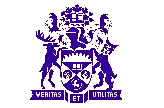Compressed Time Frame BScN Program
Unless otherwise specified, students in the Compressed Time Frame BScN Program will adhere to the program policies for the Western-Fanshawe Collaborative BScN Program, UWO-site students.
Clinical Placements
Clinical placements are an important component of all programs and may be scheduled for days, evenings and weekends. Placements are arranged in London and other communities. Students are responsible for transportation to placements.
Attendance
Due to the significance of theoretical and practice knowledge in developing professional competence, students are expected to demonstrate professional responsibility through regular attendance at, and participation in all scheduled learning activities. Much of the learning that takes place will be a result of preparation of and engagement with material and active dialogue with colleagues and faculty. Therefore, students are expected to attend ALL classes, laboratories, seminars, workshops and clinical practice and clinical conferences. While marks may be awarded for participation, they are not awarded for attendance. The implications for non-attendance are outlined in the UWO academic calendar for UWO students and in the Health Sciences Divisional Policy manual and Course Information for students of Fanshawe College. Practice Setting
Clinical Practice includes:
clinical seminars, nurses' work visits and family visits
lab practice
institutional or community practice experiences Clinical practice is an integral part of a nursing student's preparation for professional practice. Attendance at clinical practice is mandatory and critical to success in the program and to professional competence. Frequent absence will be considered unprofessional behaviour and may result in an unsatisfactory clinical performance appraisal. Students' clinical progress will be evaluated on the clinical practice time they have completed in each rotation and course. Normally there is no opportunity for make-up time in clinical practice. In the event of an absence, the student must notify the clinical agency and instructor. Professional practice courses include Nursing 052, 102w, 202x, 252, 301, 321, 352, 402w, 410w, 421, 498, 499.
First Aid Certificate
Undergraduate students are required to obtain a valid Standard First Aid Course certificate (St. John Ambulance or Canadian Red Cross) upon admission to the program. This cerificate will not need to be renewed annually. Students will present their valid First Aid certificate to their praxis seminar/clinical instructor at the beginning of the academic year in which they are admitted. Failure to comply with this policy will result in students being denied access to professional practice courses [Nursing 052, 102w, 202x, 252, 301, 362, 382, 392, 402w, 410w, 421, 498, 499].
C.P.R. -- Certification
Undergraduate students are required to obtain a valid certificate in Cardiopulmonary Resuscitation at the Basic Rescuer Level by the beginning of the year they are admitted. This certificate must be maintained throughout the program. Students will not be allowed into the clinical agencies until the appropriate documentation is submitted.
Transporting Patients
Under no circumstances, during clinical experience or outside of this time, are students permitted to transport patients in patients' or students' personal vehicles.
English Language Proficiency Requirements
Students applying for admission to undergraduate nursing programs must satisfy on eof the following criteria: - English as a first language, OR
- At least three recent years of full-time study, or the equivalent in part-time study, in an educational institution where the language of instruction and of examinations was English and which was located in a country where the first language is English, OR
- The required level of proficiency on an acceptable test of English langauge and an acceptable test of spoken English.
Acceptable Tests and Scores: TOEFL: 580 paper-based; 237 computer-based and TSE; 50 (test of spoken English) MELAB: 90, with at least 4 on the oral interview IELTS: 7, with at least 6.5 in reading and listening and at least 7 in writing and speaking. Students who, after admission, show an inadequate command of spoken or written English must improve their proficiency to the School's satisfaction. Students may be asked to withdraw from the program if their inadequate command of English interferes with their ability to provide professional services.
| 
